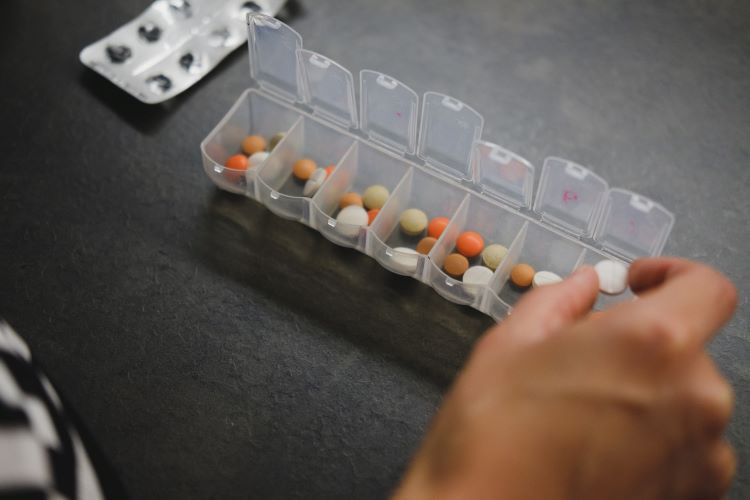Alcohol Rehab
Quick links for Alcohol Rehab
- How has COVID-19 affected alcohol rehab?
- Do I need to go to rehab for alcohol addiction?
- What should I look for in an alcohol rehab programme?
- Which medications will I be offered during alcohol rehab?
- Is it safe to withdraw from alcohol at rehab?
- Why should I go to rehab for alcohol addiction?
- References for alcohol rehab clinics
Many people are unaware that those dealing with an alcohol addiction can also be successful in life, with loving families and high-flying careers.
The stereotype of the dishevelled-looking man sitting on a park bench sipping from a bottle does not always ring true, and a great number of people suffer in silence for years before seeking help as they do not recognise the key signs of addiction within themselves.
If you have accepted that you have an addiction to alcohol and are considering treatment at a rehabilitation centre, you have already taken the first step towards recovery.
This can be an overwhelming prospect, so this article aims to shed light on the process of alcohol rehab and help you make an informed decision about your treatment.
How has COVID-19 affected alcohol rehab?

Two women discussing alcohol rehab
Our services are currently fully operational as the UK eases out of lockdown, and the majority of rehabilitation centres across the country are accepting patients as usual.
Each one of our facilities complies with hygiene and cleanliness standards and social distancing is in place to reduce the rate of transmission.
We understand that 2020 was difficult for many people and there may be an increased need for our services.
If you have been struggling with an alcohol addiction or are worried about someone you know, get in touch with us today for a consultation.
Do I need to go to rehab for alcohol addiction?

Person suffering from withdrawal symptoms whilst at alcohol rehab
Not everyone who drinks alcohol will develop an addiction and many people are able to maintain moderate drinking behaviours.
However, alcohol is a highly addictive substance and one of the most commonly reported addictions worldwide. [1]
There is no shame in struggling with a physical or psychological dependency on alcohol, and the bravery required to seek help for addiction should be commended.
If you are concerned about your alcohol use and can relate to some of the below statements, you may benefit from attending a rehabilitation centre to receive treatment for alcohol addiction.
- I use alcohol as a way to escape from the pressure and stress of life
- I begin to experience withdrawal symptoms if I am unable to consume alcohol
- Other people have expressed concerns about my alcohol use
- My performance at work or school has dropped due to my alcohol use
- I can’t imagine my life without alcohol
- I spend the majority of my time drinking alcohol or recovering from my alcohol use
- I have attempted to reduce my alcohol intake or completely stop drinking and have been unable to
- I have experienced negative consequences due to my alcohol use but continue to consume it
- I have started to neglect my responsibilities at home, work and school in favour of drinking alcohol
- I no longer attempt to keep up with grooming and my personal hygiene is suffering
- I need to drink more alcohol or drink it more regularly in order to experience the same effects
- I feel irritable, agitated and restless when I am unable to drink alcohol
- I am dishonest when I am questioned about my alcohol use
If you are worried about a loved one’s alcohol use, you may benefit from the services of a local interventionist.
What should I look for in an alcohol rehab programme?

Two men discussing treatment at alcohol rehab
Not all rehabilitation centres are created equally.
Some may focus more on detoxification and treating the physical aspects of recovery, while others are committed to uncovering the psychological reasons behind the addiction. Likewise, some may specialise in residential rehab (inpatient treatment) whilst others will focus on outpatient treatment.
It’s important to be selective when choosing an alcohol rehab centre to ensure that you are committing to a facility that is best suited to treat your specific addiction [2] and any potential co-occurring disorders.
Key factors to look out for when choosing an alcohol rehab clinic include:
- Location: Does the rehabilitation centre list testimonials from previous residents on their website? Do they have a successful track record of treating alcohol addictions?
- Cost: Is there a range of pricing options to suit your budget? Will you be able to reach a price that you are happy with? Do they offer a payment plan?
- Amenities: Are you happy with the standard of living provided? Does the treatment centre offer additional services such as a gym or holistic therapy treatments?
- Treatments: Are there a range of addiction therapies available? What specific therapies do they offer (e.g. Cognitive Behavioural Therapy, Dialectical Behaviour Therapy, Group Therapy, etc.) Will you be offered medication during the withdrawal process if required?
- Aftercare: What is their aftercare plan like? Do they offer free aftercare for at least 12 months after you leave? Can they help you prepare to attend local support networks (e.g. Alcoholics Anonymous, Narcotics Anonymous, SMART Recovery)?
- Certifications: Are the staff qualified to provide treatment? Which certifications do they have?
- Expertise: If you have a co-occurring disorder or suffer from poly-drug use, does the rehab centre have the skills and experience required to treat your condition?
Which medications will I be offered during alcohol rehab?

Patient taking pills at alcohol rehab
Recovering from alcohol addiction is notoriously difficult, and many people struggle to cope with the symptoms of withdrawal and intense cravings for alcohol that can linger for weeks or even months.
When you choose to recover in the care of the staff at a professional rehab centre, they often have the option to prescribe a range of medications that can help to reduce or prevent many of the more uncomfortable side effects of alcohol withdrawal.
1. Acamprosate
Commonly prescribed after the detoxification process is complete, Acamprosate can help to reduce cravings for alcohol and support patients towards their goal of long-term sobriety.
When taken before the consumption of alcohol it can also prevent the pleasurable sensations that alcohol can provide, reducing the appeal of this substance.
2. Disulfiram
This medication was developed to reduce the appeal of alcohol by inducing unpleasant sensations such as nausea and even vomiting when alcohol is consumed. Taking Disulfiram can make it impossible to enjoy drinking alcohol and is intended to create a negative association.
3. Benzodiazepines
It is common to experience feelings of anxiety and paranoia during alcohol withdrawal, particularly in the case of severe addiction.
While addictive in their own right, benzodiazepines can be prescribed on a short-term basis in order to treat the anxiety and insomnia that are often associated with alcohol withdrawal. [3]
4. Naltrexone
If alcohol is consumed after Naltrexone has been taken, the individual may still experience the feeling of inebriation but the euphoric sensations will be dulled. Even if they attempt to consume additional alcohol they will be unable to gain pleasure from ingesting this substance.
Is it safe to withdraw from alcohol at rehab?

Man suffering from withdrawal symptoms at alcohol rehab
A rehabilitation centre is the safest and most effective environment in which to detox from alcohol, as you will be surrounded by experienced staff and monitored 24/7 while your body attempts to rebalance and learn how to function without the presence of alcohol in your system.
If you have been consuming large quantities of alcohol for a long period of time, you will likely suffer from withdrawal symptoms during detoxification, and these can be deadly if not properly managed.
Common symptoms of alcohol withdrawal syndrome include:
- Anxiety and depression
- Frequent mood swings
- Exhaustion and fatigue
- Excessive perspiration
- Nausea and vomiting
- Increased heart rate
- Headaches
- Feeling irritable and cross
- Involuntary tremors and shakiness
- Insomnia and nightmares
- Loss of appetite
- Pale and clammy skin
Severe alcohol withdrawal symptoms (commonly known as delirium tremens) include:
- High fever
- Visual, auditory and tactile hallucinations
- Extreme confusion and agitation
- Increased blood pressure
- Seizures
It is not recommended to detox from alcohol at home unless you have theb of a medical professional.
Instead, you should always go through the withdrawal process within a medical environment. [4]
The majority of patients will find detoxification to be a merely uncomfortable process, but between 3-5% will experience severe symptoms that can be life-threatening.
Even the mildest withdrawal symptoms can get worse very quickly and there is no method to predict how any one individual will react to the process.
Why should I go to rehab for alcohol addiction?

Staff member taking notes whilst speaking with a patient during alcohol rehab
An addiction to alcohol can have a detrimental effect on every aspect of your life and negatively impact the people around you, including your loved ones like friends and family members.
You may struggle with feelings of shame and low self-worth and attempt to numb these emotions with more alcohol, only adding to the problem in the long term.
Many people who deal with an alcohol addiction have suffered past trauma or are living with an untreated mental health condition, both of which can be treated in a specialised rehabilitation centre.
If you have attempted to reduce or completely stop your alcohol intake at home and have been unable to, you may be reassured to learn that it is very difficult to recover from an addiction without professional help.
The most effective treatment for alcoholism is to seek help within a rehabilitation centre or through a specialised recovery programme.
Over the years, an addiction to alcohol can result in a number of side effects that drastically lower your quality of life.
Common effects of alcohol addiction include:
- Loss of employment
- Financial troubles
- Legal troubles
- Strained relationships with family and friends
- Long-term physical health issues
- Increased risk of mental health issues (anxiety, depression, borderline personality disorder, schizophrenia, etc.)
- Low self-worth and self-esteem
Entering rehab and seeking professional help for your alcohol addiction can drastically improve your physical, mental and emotional health while allowing you to live a happy and fulfilled life.
To begin your recovery journey at the right alcohol rehab centre for you, give our team a call for free on 0800 326 5559.






